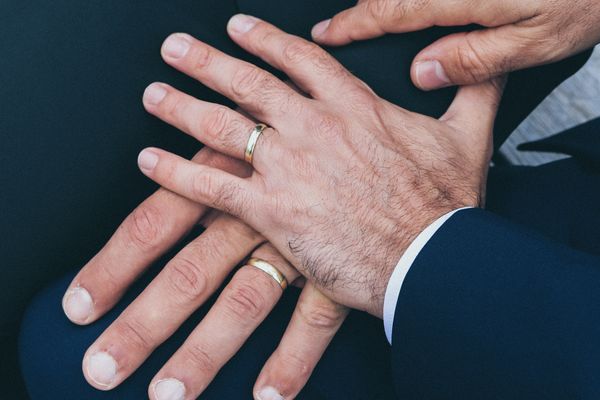Growing up in the Bible Belt of Michigan as a gay male, I heard this expression so often. I grew up in a small town outside of Grand Rapids called Lowell. The best way to describe the religious environment around there is that growing up, we asked each other what denomination the other was. Yup — what denomination. I grew up in a place where we assumed that everyone was Christian, and you bet your lucky stars that everyone stuck to their "traditional, pure, Christian values."
I know a lot of people try to use the expression, "Hate the sin, love the sinner" in a positive manner, but to minorities that it is used against, they do not feel the same way. You see, my sin, which is laid out in Leviticus, is central to my identity. Everything I do is layered on top of the fact that I, myself am gay. My sexuality is the foundation for my life. Even if I may not be the most flamboyant guy out there, being gay affects me just as much as you being straight affects you.
I remember having this one friend (her name will be Shelly for the sake of this article) who was my absolute best friend. In fact, we still are friends, but not nearly as close as we used to be. I would go over to her house everyday or she would come over to mine. We watched movies together, we rowed together and we literally shared every moment of high school together from freshman to junior year. She was my date to a few dances, and honestly I wouldn't have asked for a better friend. Her family is heavily right-winged Christian, but they were never rude about their views. I think that they're just a stereotypical West Michigan family, but they never realized how much saying "I hate the sin, but we love you" really hurt me.
These people were like a second family to me. They didn't understand. The basis behind saying "Hate the sin, love the sinner," is that you are saying that you think that the emotional makeup of the person is unholy and must be condemned. This in and of itself produced a hateful atmosphere towards whomever it is aimed towards (queer folk in this case). You're essentially saying that you dislike the person, but you believe that if you can just get them to change then they will be okay. They will "see the light."
Odds are that you can't change them. Odds are that someone who is queer isn't being queer to "spite God" or shove their sexuality in your face. The odds are that that person is just being them, and you saying that you hate their sin is helping to keep them in the closet or further their fear of being open around new people. The real cost of telling someone that you hate their sin, but love them is that you hate everything about them.





















